- Home
- Laurelin Paige
Slash: A Slay Series Novella Page 4
Slash: A Slay Series Novella Read online
Page 4
Please God don’t let this be one of those times. I drop the laptop on the kitchen work top and study the image now on the screen. It’s good. I mean, it’s fine. It has all the elements I asked for, and the mistake from yesterday is gone.
I also suddenly have a flash of an idea, a different design altogether. More curved, less angular, a friendlier message for the alliance of three powerful companies.
It’s too late to pursue the vision now. What could be has to be left at what could have been. On too many occasions, it seems. Never enough time. Never enough energy. Never enough bandwidth.
A more talented artist would have seen it earlier.
I ignore the nag and forward the file to Edward. “I sent it. You should have it shortly.” Then I’m cursing again as I abandon the laptop to rescue the pasta. This time I turn down the flame when I return it to the burner.
“Got it,” Edward exclaims. He becomes more compassionate with his relief. “Is everything okay over there? It’s not like you to miss a deadline. Is there anything I should be concerned about?”
It’s a loaded question, isn’t it? Whether he means to or not, he’s reminding me of all the times he’s had to be concerned in the past. How often has he had to rescue me? He’s been a better knight than I could ever ask for, which is another privilege, really. Especially considering that I never would ask that of him if he ever gave me the option.
There’s the other reminder there too, of the time he didn’t know to be concerned. How different would things be if I’d told him earlier about Frank? If I’d told my brother about the beatings and the gaslighting and the verbal abuse years before, my escape might have come at less of a cost.
But I’m not faced with a foe now as I had been then. What is there in my privileged life to concern my brother about? I can imagine how the conversation would go.
“Parenting’s hard.”
“Then get more help.”
“It’s not as easy as that.”
“Should I send money?”
“That’s not the support I need.”
“Have you heard of an app called Tindr?”
The weight of depression is immeasurable outside of its confines. It’s indescribable. There are never words to express the burden of being underneath.
It’s a waste of time and energy to even discuss.
So I answer the question on the surface instead of the one he’s really asking. “Just a lot going on. Shelly’s on holiday, and Anwar called off sick, and Fred’s a handful.” I immediately feel guilty for even that. His baby is only two months old. How hard is it to run a billion dollar corporation when you never get a full night’s sleep? “You know how it is.”
“I do.” He hesitates. I can feel him warring with himself, wondering if he should pry. “Camilla…?”
I think of Hendrix on Saturday night, the way my name sounded hanging on his tongue. I’d wanted to say more then, too. I’d wanted to say more than I’d ever said, wanted to unburden everything on him. Wanted him to hold me and tell me I was okay.
But then I’d hid, like I always do. I don’t think I know any other way.
“I’m fine,” I say to Edward. “Really. But if I don’t get off the phone, my pasta is going to be overcooked.”
He laughs, likely because the man doesn’t have the slightest idea of what it takes to cook even simple spaghetti. “I’m here though. If you need anything.”
“I know. Goodbye.”
I throw the mobile down and resume the chopping, determined to see this meal through. I get through the rest of the onions and move to the tomatoes. The work is hypnotic—the slice of the knife through the peel and guts, the sound as it hits the board underneath. There’s a satisfaction in each cut. There’s permanence. A mark made that can’t be undone. The most addictive form of art.
Tempting. So very tempting.
When Freddie runs in, I’m shaken from an adrenaline-filled daze. The sleeve of my long-sleeved shirt is rolled up, and I’m staring at the knife in my hand.
I blink. Horrified, I toss the utensil in the sink, as eager to have it out of my hands as I would be if it were a hot coal.
“Look at this one, Mummy. I made this one dynamite.”
I laugh aloud before I take the robot drawing from him, startling us both. I turn off the burner, wipe my hands, and pick up my mobile. “Hold on one minute. Let me order dinner. Tandori sound good?”
“Extra na’an,” he says. He’s not disappointed in me in the least.
Chapter Four
Framing: The method by which information is included or excluded from a photograph, film, or video. A photographer or filmmaker frames an image when he or she points a camera at a subject. - MoMA Glossary of Art Terms
I’m quite an idiot.
I realize it when I stand in front of the class the following Saturday. Looking around, I notice most of them in jeans or relaxed wear, an appropriate choice for a weekend course, while I’m dressed in a long-sleeve trouser suit that would be better suited for the office. I can excuse my choice of attire as wanting to be professional, which is true, but the decision to apply heavier makeup and—God help me—curl my hair makes my look stand out.
It says I’m trying too hard.
And I am.
Hopefully, they believe I’m trying for them, to present myself as a suitable teacher, which again, is true, but the reality is I spent the extra time getting ready with only one student in mind. A student who I have forbidden myself from caring about.
Obviously that’s going swimmingly.
It’s not fair that Hendrix looks absolutely scrumptious in a pair of light khakis and a dark blue Henley. He hasn’t even shaved in a couple of days, and somehow that lack of effort makes him all the more delicious.
It’s quite the opposite from how he appeared in Paris. There he was clean-shaven and freshly cut, the kind of look that generally catches my eye. Paired with the slim-fit suit he’d worn for his presentation, and I was a goner.
It strikes me now that I might not have even given him a second glance if he were relaxed as he is now, yet this look is more fitting. This is who he is—rough-edged and indifferent with just a hint of wild in his eyes, despite the laid-back posture.
I memorize him in this moment, a photo snapped in my mind, framed without Kaila beside him—wasn’t she a dear for saving him a seat?—so that I can study it later and fully appreciate his rugged beauty without all the noise surrounding him.
Then I put him out of my head and turn my attention fully to the class agenda.
“Every photograph should tell a story, even a portrait,” I begin, and all eyes laser in on me. It’s weird being the most fascinating thing in the room. Unsettling. Especially when I feel the bob of my stupid curls at each turn of my head. I feel like a performer rather than a field expert. Like I’m pretending to have something worthy to share.
It’s easier when I really get into the lecture. The words flow when I’m talking about something I know, something I’m passionate about, and this particular subject is one I could spend all day on. Unfortunately, I’ve only allotted myself twenty minutes so I have to stick to the bare essentials, only having time to show them examples using my own work when there are so many other artists I’d love to discuss with them.
But this is a workshop, not a lecture study. I’ve done the math—thirteen students, a three-hour class. After I speak, that leaves them twenty minutes to get started on the activity. Then I’ll have ten minutes to coach each of them individually as the rest continue to work.
I watch the clock and wrap up quickly when my limit is up. “Now it’s your turn,” I say, hoping I’ve given them enough scraps of information to make something meaningful. I divide them in three groups of three, one group of four, and send them to the hallway to take turns taking portraits of their team members.
“Why the hallway instead of in here?” one asks. Arthur who goes by the too-appropriate nickname of Arty.
My immediate reaction is t
o assume I’ve made a mistake, and I briefly question my decision along with him. The classroom is set up with backdrops and flash kits, and surely the students expect to be given time to use the equipment.
But I want to teach them photography skills that transcend the studio, and the hall outside the classroom is both quiet and magnificently lit with natural light coming through the floor-to-ceiling windows. I hadn’t realized how perfect the setting was last Saturday because it had been slightly overcast when I’d come in. This morning, though, the sun was streaming in rays of gold, and I’d had to stop to catch my breath imagining the photos that could be caught there.
I’m thinking of a fancy way to explain myself, trying to figure out how to address anyone who might believe the class should be more focused on studio work when Hendrix answers simply for me. “Because of the light,” he says simply. “You’ll see.”
Of course he’s the one who understands. While everyone who registered had to have a background in art, Hendrix is the only one who had real camera experience. It’s a photographer’s habit to notice the light. Always measuring the luminance with the mind, at least, if not an actual photometer. It’s impossible not to. Light is the basic element of photography, as necessary to the art as air and water are to the human body, and just as a person would notice when a room lacks oxygen, a photographer notices when a room lacks light.
I find I’m seeking it constantly, anchoring myself in it when it’s found like a cat curling up in a bright patch of sun. Hoping one day that the light will penetrate past the layers of clothing and my mutilated skin and warm up the person inside me.
And so maybe it’s the light that draws me out to the hallway with them when I’d planned to send them to work on their own while I read at my desk until it was time to meet with them one-on-one. I’d almost believe it myself if my attention was spent equally across the groups as they pose and adjust and click, click, click.
But it’s hard to watch anything other than Hendrix, his expression intent as he measures angles with his eyes. I cringe imagining sitting for him, which isn’t quite fair because I’d cringe sitting for anyone. But for him, especially.
I don’t think about the fact that I’ll have to coach him soon.
That’s a lie.
I try not to think about it, but it’s very present, like a fly trapped in the car, buzzing and buzzing as it searches the vehicle for escape, slow to take the one presented when a window is inevitably rolled down.
I’m annoyed with the buzz of Hendrix. More so than with a fly because it’s my own mind that’s trapped him. My own mind that refuses to shoo him out of any one of the hundred windows I’ve opened up to let him out.
Although I wouldn’t be obsessed with him if he hadn’t enrolled in my class. There. It’s not my fault alone, it’s his fault too. It’s his fault first.
But it’s my fault when he catches me watching him. And it’s my fault again when I don’t look away. He’s too captivating, the way he studies me. His face illuminates and if I had my own camera, if I snapped right now, anyone who looked at it later would see the story. Brutally handsome man pleased by what he sees.
I shiver when I remember that what he sees is me.
Oh, look at that. It’s time to mentor.
“All right, who’s ready to discuss their work so far?” Immediately, I regret giving them the choice to step up—what if Hendrix is the first to volunteer? I can’t start with him. Can’t, can’t, can’t.
Fortunately, Salima is bouncing eagerly like Freddie when he’s waited too long for the loo, and I happily attend to her first, pulling her aside in the hallway so the others in her group can continue practicing while I talk with her.
And now it’s easy again. Honestly, I’m meant for one-on-one, as long as the conversation isn’t centered around me. It’s especially easy when there is a particular focal point for discussion and even more so when I have something worthy of saying. In this case, I have lots. Soon I’ve slid into the role of art critic, my tone brusque and honest with Salima and then Arty and then Karen and on down the line.
“These aren’t stories, they’re headshots,” I say, clicking through one student’s series of takes. “I feel as though I’m a casting agent. All shots looking directly at the camera, their smile fake and plastered on.”
“It’s not my fault Sara doesn’t know how to pose.”
I’m grateful I’ve pulled him away so that Sara doesn’t hear Charlie’s complaint. It’s not really about her anyway. It’s about him and he’s being defensive.
I remind myself it’s hard to accept criticism, no matter how well-meaning the critic, and take a deep breath before I speak again, more gently this time. “You have to ask for what you need if you’re not getting it in the moment. It’s not the job of the subject to create the art.”
And so it goes, one student after another, and I discover that a few of them have a natural eye and that others are bloody awful and that most are wobbly as toddlers, still trying to adapt to the medium, but all of them are willing to learn. I see when my notes resonate, and I pivot when they don’t, and each of them is quick to adjust when I watch them take a few more pics after our chat.
But now there’s only one group left—three students, one of them the one I’ve been avoiding, and as much as I didn’t want him to be first, I equally don’t want to leave him for last.
I watch the three shuffle and work together, one sitting for the other two who dance around each other with their cameras. They’ve had more time to get shots in, and there will be a lot for me to look through, so I shouldn’t delay.
Gathering myself, I call him out. “Hendrix.”
He takes a second to respond, tearing himself from his hyper-focus in stages. First, he lowers his camera. Then he takes a step back. Finally, he pulls his head from Marie and looks at me. “I’m up?”
“You’re up,” I confirm, surprised my voice sounds as giddy as it does. Surprised that it’s genuine enthusiasm.
Because I’m eager to see his work, of course. No other reason.
But when he’s standing next to me, hovering over my shoulder as I flip through the pictures on his Sony A7R IV, a camera too new and too specific to portrait work to be his usual camera, I find it rather difficult to really see anything at all. My sight is overwhelmed by my other senses—the musky scent of man, the steady sound of his breaths, the heat radiating from his body that’s oh, so close in proximity.
I’ve passed by at least a dozen shots without seeing them before I manage to force myself to blink and focus.
And now I’ve something new to distract me, because I’ve gone so far back that I’ve missed all the photos he took of Marie, a cheery gray-haired plump woman that one can’t help but adore, and am now seeing the shots he took of Kaila. Frame after frame she fills the digital screen, and, really, she’s flawless. Her skin, her coloring. The stupid little quirk of her lips.
Has he kissed those lips? Has he parted them with his tongue? Has he explored her fully with his own mouth?
I can’t know from what I’m looking at, and it hurts to wonder, but it hurts even more to hope that he hasn’t so I lean into the pain and accept that he probably has. And why wouldn’t her lips quirk up at the attention of her lover? Why wouldn’t she look radiant in his presence?
Except that’s not her, I realize when I study further. That’s the photographer making her glow. That’s Hendrix’s ability to capture the light.
Once I see his talent, I’m able to see past the subject. I knew he was good before, of course. I’ve pored over many of his nature shoots online late at night since our tryst in the autumn, enough to understand his style, and I’m sure I could correctly identify his work out of dozens of others.
I see that style here in the framing and the angles and the concept. But beyond the technique, there is something missing, something I can’t identify.
“What’s the story?” If he can’t articulate it, that will be the reason I can’t find it.
“A bright, young ambitious girl nervous under the scrutiny of someone she admires.”
I frown at his answer, unwittingly. I’m both impressed and annoyed that he’s that aware of his subject. “Yes, I suppose it would make her nervous to be photographed by the man she’s crushing on.”
Is my envy evident? It’s nonsense jealousy, wanting his attention and not wanting it all-at-once. I’m sure I confuse him. I’m confused myself.
“I was talking about her teacher.”
Now I’m confused by him. I look up questioningly, prompting an explanation.
“She knew you were watching. Of course she was preoccupied wondering what you were thinking. What you observed.”
I actually laugh. The man is not as self-aware as I thought. “She’s preoccupied with you, not me. Trust a woman to know.”
“Well, then,” he says with a shrug, “I guess I was confusing her story with mine.”
A strange spiraling emotion takes me over, tightening my chest as it wraps around me, leaving me warm as it slithers down. I’m embarrassed and thrown. What’s his motive? He can’t be speaking from a place of sincerity. And also, dammit, he saw me watching, and now I suddenly want to bury my head in a hole.
I throw my gaze back to the screen so he doesn’t see the flush in my face and take the moment to regroup. “It’s the right story,” I say, as though he hadn’t just shot an arrow to my heart. “It doesn’t matter exactly who it was who had her flustered. The fact remains that she is pleasantly uneasy. I can see that clearly.” It’s most evident in the series of shots, which is not a lesson I have planned to teach for another couple of weeks. Leave it to Hendrix to tackle assignments in advance.
I stop at a particularly well-composed frame. Technically, it’s perfect, but it’s not right. I mean, it’s head and shoulders above anyone else I’ve critiqued today, which is what makes it all the more frustrating to not be able to put a finger on the flaw. There is agony in the “almost.” More so than when a mark is missed entirely. I’d rather the miss any day. To be so close to the goal and miss it by a hair? That’s a kind of torment that haunts.

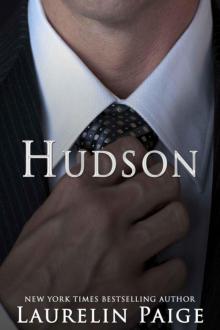 Hudson
Hudson Star Struck
Star Struck The Fixed Trilogy
The Fixed Trilogy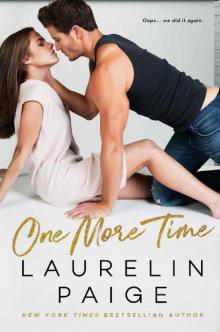 One More Time
One More Time Dirty Filthy Rich Men
Dirty Filthy Rich Men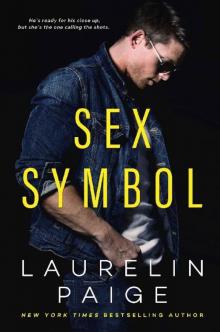 Sex Symbol
Sex Symbol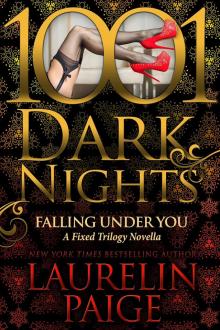 Falling Under You
Falling Under You Found in You
Found in You Chandler
Chandler Forever With You
Forever With You Dirty Filthy Rich Love
Dirty Filthy Rich Love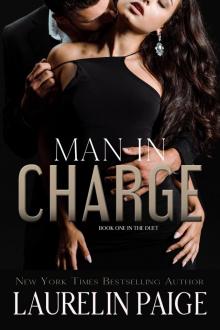 Man in Charge, Book 1
Man in Charge, Book 1 The Open Door: A Found Duet Novella
The Open Door: A Found Duet Novella Dirty Sweet Valentine: And Other Filthy Tales of Love
Dirty Sweet Valentine: And Other Filthy Tales of Love Dirty Filthy Fix
Dirty Filthy Fix Find Me
Find Me Dirty Filthy Rich Boys
Dirty Filthy Rich Boys Winter Bloom (Dating Season Book 4)
Winter Bloom (Dating Season Book 4) Need you Now (Top Shelf Romance Book 2)
Need you Now (Top Shelf Romance Book 2)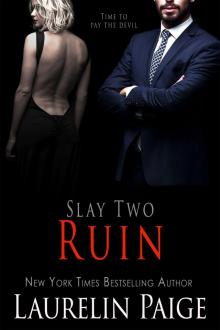 Ruin: Slay Two
Ruin: Slay Two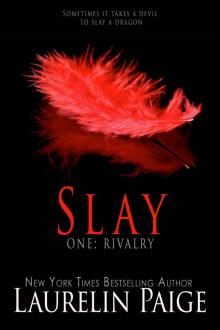 Slay
Slay Dirty Sexy Player
Dirty Sexy Player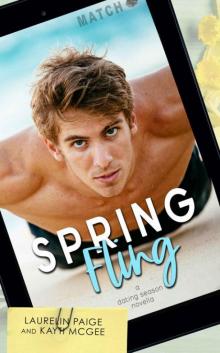 Spring Fling (Dating Season Book 1)
Spring Fling (Dating Season Book 1) Dirty Sweet Valentine
Dirty Sweet Valentine Free Me
Free Me Last Kiss
Last Kiss Sweet Liar
Sweet Liar Wild War
Wild War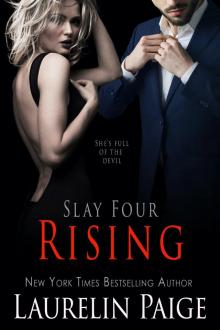 Rising
Rising Porn Star
Porn Star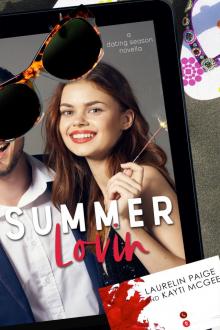 Summer Lovin: A Dating Season Novella
Summer Lovin: A Dating Season Novella Sweet Fate
Sweet Fate Fall Hard (Dating Season Book 3)
Fall Hard (Dating Season Book 3) Dirty Filthy Fix_A Fixed Trilogy Novella
Dirty Filthy Fix_A Fixed Trilogy Novella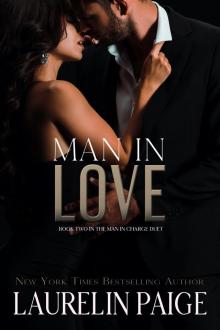 Man in Love
Man in Love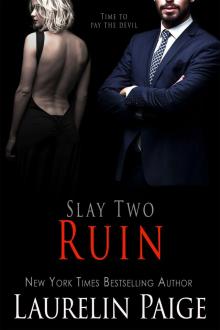 Ruin
Ruin Summer Rebound (Dating Season Book 2)
Summer Rebound (Dating Season Book 2) Revenge
Revenge Complete Fixed: The Complete Fixed Series: Books 1-5
Complete Fixed: The Complete Fixed Series: Books 1-5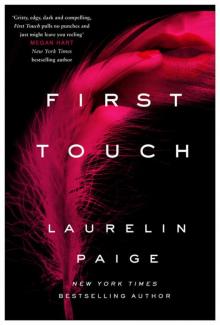 First Touch
First Touch Holiday for Hire
Holiday for Hire Wild Rebel
Wild Rebel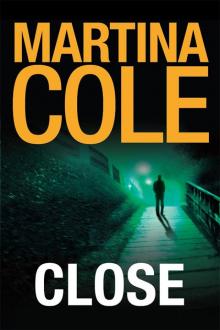 Close
Close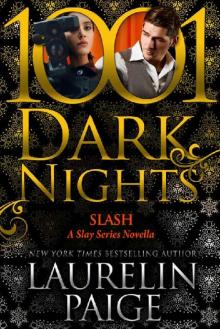 Slash: A Slay Series Novella
Slash: A Slay Series Novella Star Struck (Hollywood Heat)
Star Struck (Hollywood Heat)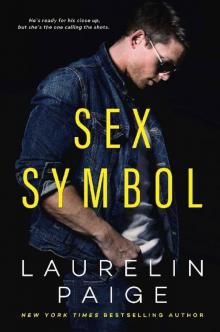 Sex Symbol (Hollywood Heat Book 1)
Sex Symbol (Hollywood Heat Book 1) Dirty Sexy Games
Dirty Sexy Games Dirty Filthy Rich Boys (Dirty Duet Book 1)
Dirty Filthy Rich Boys (Dirty Duet Book 1)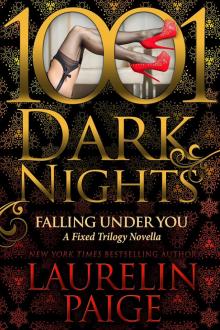 Falling Under You: A Fixed Trilogy Novella (1001 Dark Nights)
Falling Under You: A Fixed Trilogy Novella (1001 Dark Nights) Chandler: A Standalone Contemporary Romance
Chandler: A Standalone Contemporary Romance Fixed Forever
Fixed Forever Hot Cop
Hot Cop Dirty Filthy Rich Love (Dirty Duet #2)
Dirty Filthy Rich Love (Dirty Duet #2) The Fixed Trilogy: Fixed on You, Found in You, Forever With You
The Fixed Trilogy: Fixed on You, Found in You, Forever With You